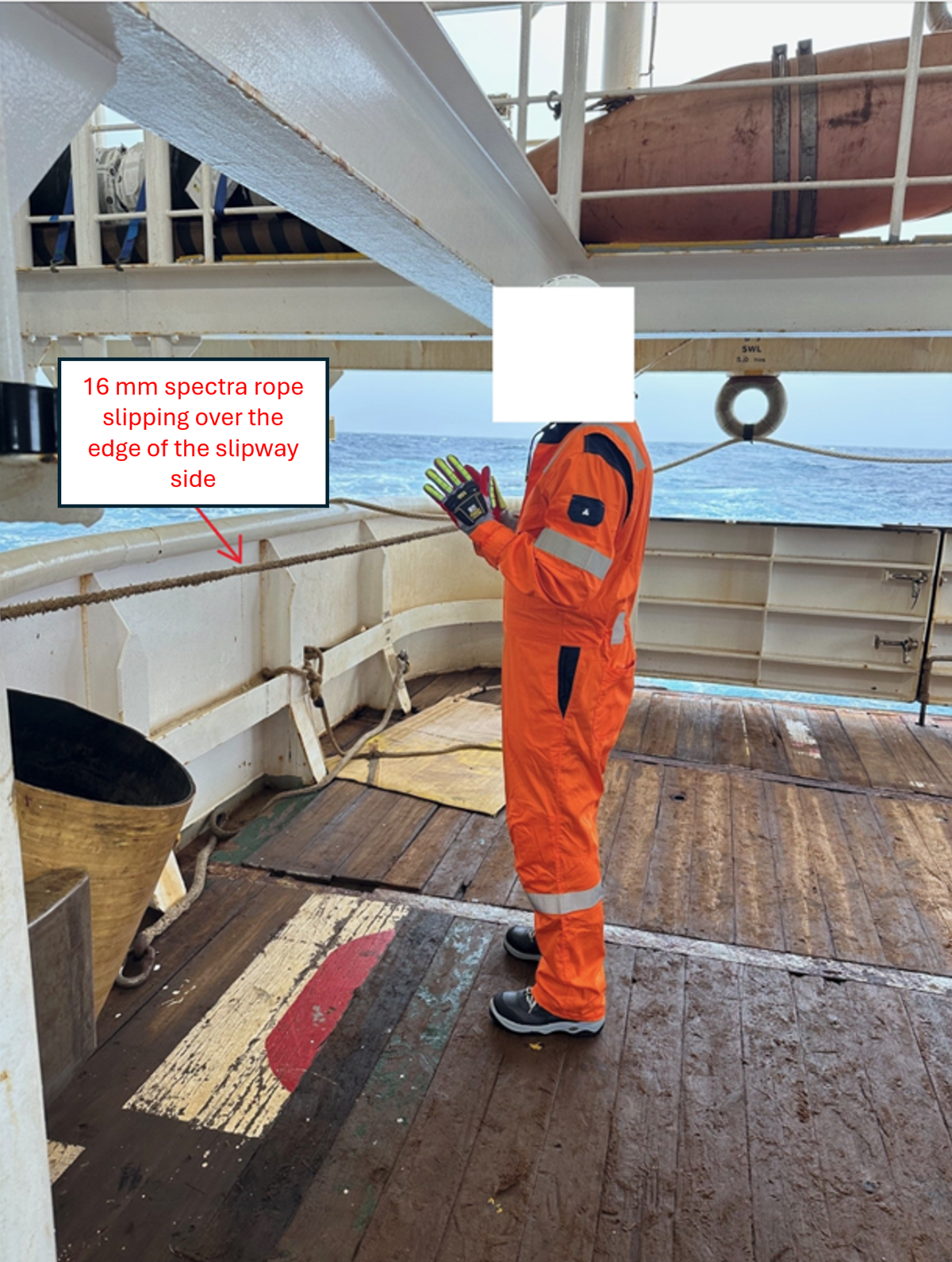LTI: rope under tension moved and hit person’s hand
- Safety Flash
- Published on 19 March 2025
- Generated on 4 March 2026
- IMCA SF 05/25
- 2 minute read
Jump to:
A member of the crew suffered a serious hand injury when struck by a rope under tension.
What happened?
The incident occurred when equipment in the sea was being retrieved to deck. It was necessary to attach a winch rope to stabilize the equipment as it was hauled aboard. While the equipment was being maneuvered, the winch rope jumped the side of the slipway and snapped back hitting the injured person. He raised his hands as a brace and was struck in his right hand by the rope under tension.
An All Stop was called, and the crew member taken to the hospital for treatment. He was subsequently medevaced with the two smallest fingers of his right hand broken. Follow up examination indicated further complications which will require amputation of the distal tip of the right small finger.

Position of crew at time of injury (re-enactment)
What went wrong?
- The underlying causes were:
̶ The equipment being recovered was moving around owing to sea conditions, causing the winch rope to move also.
̶ It had been thought that this would be a safe zone as this has not happened before.
̶ The injured person was stood in a hazard area not recognized as such – there was no “No go zone” outlined.
- The root causes were:
̶ There was complacency and potential risks were not identified.
̶ The vessel was not designed to handle equipment in the way it was being done.
Lessons and actions
- Situational awareness: take a new look at how work is taking place, and try to recognize previously unnoticed new situations that place crew members in the line of fire.
- Better identify and mitigate dynamic risks during operations – if necessary, adapt plans to the weather and environmental conditions.
- There was a review of the work instructions for this activity.
- A “No-Go Area” during recovery was implemented.
- This task was redesigned to remove the risk as far as was possible.
Members may wish to refer to
HSEQ Direct (https://hseqdirect.com/) has an excellent teaching resource on “Avoiding hand injuries”
Related Safety Flashes
-
IMCA SF 28/21
15 October 2021
-
-
IMCA SF 28/21
15 October 2021
-
-
IMCA SF 20/19
23 August 2019
-
IMCA Safety Flashes summarise key safety matters and incidents, allowing lessons to be more easily learnt for the benefit of the entire offshore industry.
The effectiveness of the IMCA Safety Flash system depends on the industry sharing information and so avoiding repeat incidents. Incidents are classified according to IOGP's Life Saving Rules.
All information is anonymised or sanitised, as appropriate, and warnings for graphic content included where possible.
IMCA makes every effort to ensure both the accuracy and reliability of the information shared, but is not be liable for any guidance and/or recommendation and/or statement herein contained.
The information contained in this document does not fulfil or replace any individual's or Member's legal, regulatory or other duties or obligations in respect of their operations. Individuals and Members remain solely responsible for the safe, lawful and proper conduct of their operations.
Share your safety incidents with IMCA online. Sign-up to receive Safety Flashes straight to your email.